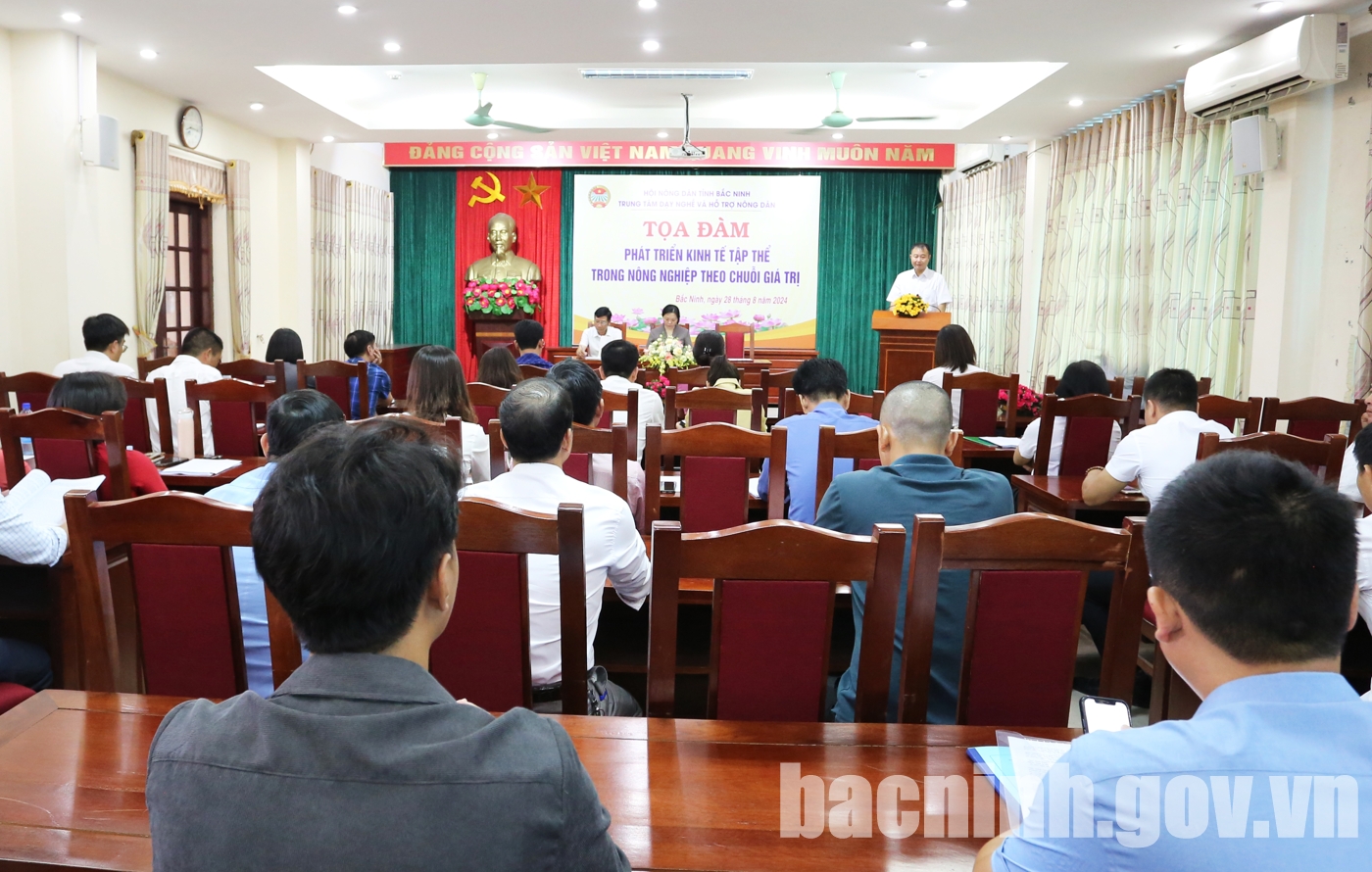Seminar “Developing collective economy in agriculture according to value chain” held
(BNP) – On August 28, the Provincial Centre for Vocational Training and Farmer Support (the Provincial Farmers’ Union) held the Seminar “Developing collective economy in agriculture according to value chain”.

Overview of the seminar.
Participants at the seminar were leaders of the Provincial Farmers’ Union; leaders of the provincial departments, branches and sectors; Farmers’ Union of districts, towns and cities; representatives from businesses, cooperatives, typical farm owners, excellent production and business households in the province.
Since the beginning of 2024, the Provincial Centre for Vocational Training and Farmer Support has provided nearly 600 tons of various fertilizers in the form of deferred payment to farmers; organized 12 training courses to transfer science and technology to more than 2,600 people; coordinated with businesses to build 5 models of using slow-release pellet fertilizer on rice plants, etc.
The development of collective economy in agriculture according to value chain will create a fundamental switch in the value of products and goods, attract and create more jobs for rural workers, help reduce the pressure of unemployment, increase income, and improve the workers’ lives. Therefore, it contributes to maintaining political security, social order and safety, and building new rural areas.
Participating in the discussion at the seminar, delegates focused on exchanging and sharing practical experiences, difficulties and advantages of units, organizations and individuals in implementing farmer support work; the current situation of production linkage associated with product consumption of agricultural cooperatives in the province; the role of agricultural extension work in developing cooperatives, and so on.
The seminar is an opportunity for officials and farmer members to discuss, exchange experiences, and find practical solutions to promote the development of collective economy in agriculture, especially in building and developing product value chains. At the same time, it helps farmers and cooperatives access policies and product output information, creating conditions for farmers to propose, express their thoughts and aspirations, and listen to answers to recommendations and orientations for agricultural production development in the province.






